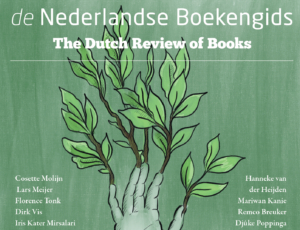At the farewell party Henk Wesseling offered the staff members of NIAS on the occasion of his retirement as rector in September 2002, he proudly showed the manuscript he had just completed which would be published in translation a year later as The European Colonial Empires, 1815-1919. More translations would follow, providing further testimony of his international reputation as a specialist in this broad field. His greatest success was Divide and Rule. The Partition of Africa, 1880-1914 (1996), first published in Dutch in 1991. He was a renowned expert in the colonial and military history of the nineteenth century, knowledgeable of the literature in various languages. The impressive dissemination of his works owed much to his captivating writing style, addressing complex situations in a clear and vivid way combining sharp insights with a light touch. He abhorred statistics and models, preferring understanding individuals’ viewpoints in the light of their historical situations. He certainly displayed empathy with the victims, such as suppressed African populations and the soldiers of the Great War, but without taking sides, always keeping a slightly ironical distance. He intensely disliked the kind of dogmatism he had observed in the previous generation of Dutch historians.
Henk started his career as a school teacher and he applied his didactical talent to text books for secondary schools. As a university professor in Leiden from 1973, he loved to teach at all levels, but he was at his very best when addressing large audiences. His tongue-in-cheek humour and his anecdotes kept students and the general public riveted. His train of thought expressed a vision but no paradigm or theory, and always offered an insight in the multifarious complexity of historical contexts. In May 2000 he delivered a lecture in The Hague to a varied academic audience with a turnout that so exceeded the organisers’ expectations they had to cancel the drinks/refreshments afterwards.
Henk had chosen a topic within his acquainted domain: how can we understand that European governments pushed their armies and populations into the huge massacres of 1916 and thereafter, while it should have become clear already that the frontlines did not move significantly and that ‘battles did not solve any problem’, to vary slightly on one of his book titles? His impressive rhetorical talent captured the attention during nearly an hour in an over-heated hall. His answer was clear: governments on both sides had terribly overestimated their power while promising nothing less than rapid and total victory in 1914; the more victims they had made, the greater the commitment they had to maintain their claims. Happy students to have such a convincing teacher!
Henk not only had the drive of a talented school teacher, his writing style was of a similar construction as his spoken words. This explains why he so effectively reached a broad public. Over a period of eight years, he wrote a column in the Dutch quality newspaper NRC every fortnight on historical, academic, political subjects but also various other topics such as cookery, his wine cellar, and ars amandi. In total, his journalistic essays number over two-hundred items. His ‘societal impact’ was huge, long before this criterion was discovered by the administrators of academic performance.
His public visibility in the Netherlands, combined with his global academic network, proved central to his role as rector of NIAS from 1995-2002. One of his motto’s that ‘we do not learn from books alone but also from discussion and debate’ was what he so masterly expounded at daily lunch, during formal seminars and at the private dinners he organised, both at the Institute and at home, in honour of stellar fellows. This was also one of the ways he fostered links between international scholarship of the highest standard and the academic, political and press circles in the Netherlands, as well as the Royal Court. One of his successes at NIAS was the creation, with the support of Professor Victor Halberstadt, of a sponsored fellowship for financial economists, attracting some of the very best scholars in this field. And there were many more such as the Writer-in-Residence, Journalist-in-Residence, and Duo-Fellowships with neighbouring regions North-Rhine-Westphalia and Flanders, to name but a few of his achievements. Besides continuously working on his own publications, he also acted as editor-in-chief of the European Review.
I only truly began to understand the depth of his hospitality when I took over as rector. A conversation with Henk was always a true delight not just because of his great erudition, his formidable memory, his vivid narrative, open mindedness but also his cultured bonhomie. It was a privilege that he stayed on to enrich the fellow community for a period as Honorary Fellow. A true Scholar in every sense, a jolly good fellow.
Wim Blockmans was Professor of Medieval History at Leiden University and Rector of NIAS from 2002 to 2010.



